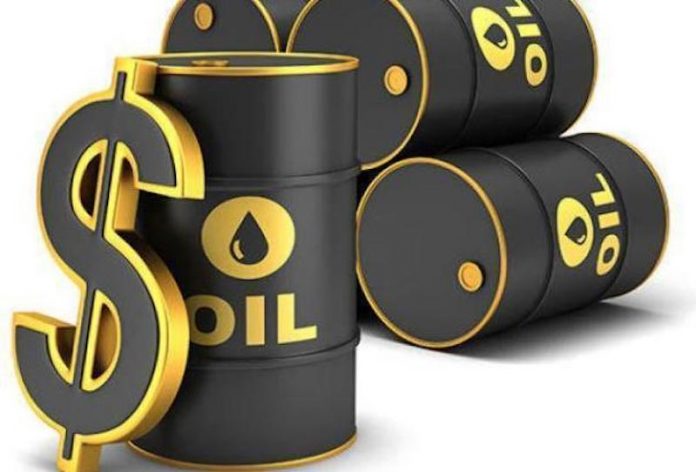In a desperate effort to offload and sell stranded barges of oil, the Federal Government, yesterday, offered oil traders huge discounts on Nigerian crude oil grades below the $10 mark, as glut and energy imbalance triggered by the coronavirus hit the oil industry.
Latest prices for most of the government’s crude oil grades for sale in May, showed prices as low as $1.51 while two of Nigeria’s banner grades – Qua Iboe, and Bonny Light will sell at discounts of $3.92 and $3.95 respectively to Dated Brent next month.
Without refining capacity, Nigeria lacks the space to store unwanted supplies at a time the cost of hiring ships to take its supplies to importers has soared because many tankers are being used for floating storage.
The discounts are coming after the Group Managing Director, Nigerian National Petroleum Corporation (NNPC), Mele Kyari, had painted a gloomy picture of the Nigerian economy in the months ahead, appealing to industry captains and Nigerians, to be prepared for very lean times.
According to him, the country has been unable to sell some of its cargoes of crude and liquefied natural gas.
For oil-dependent economies like Nigeria, the challenge of containing community spread amidst the pressure to re-open the economy that is largely informal leaves policymakers in a limbo.
Indeed, IEA’s latest Oil Market Report painted a dire portrait of global demand, but it nevertheless assumes that there is a resurgence in demand close to normal levels by the end of the year.
But there are multiple reasons why the global economy may not return to anything close to “normal” even by the end of 2020.
Similarly, traders cautioned that the prices – $10 a barrel or less if the market doesn’t improve still may not tempt enough buyers because of the demand collapse triggered by the coronavirus.
The release of the Nigerian official selling prices was about a week late, while loading plans for June have started to emerge several days later than normal.
The nation’s exports of Qua Iboe crude oil for May, have been revised lower to 153,000 barrels a day (bpd) from the previously planned level of 215,000, while June’s shipments are set at 158,000bpd, according to loading schedules.
The dire state of the oil market has meant that despite being so cheap – $50 or $60 a barrel would have been realistic just a few months ago – Nigerian barrels have been selling slowly.
Traders estimated that as of late last week, about 30 out of 65 May-loading cargoes still hadn’t been sold.
The coronavirus has halted swathes of the global transportation system, destroying demand for fuels in the process. Some estimates are that the reduction in demand could have been as big as 35 million bpd, or roughly 35% of global consumption.
Nigeria is one of the countries taking part in a global pact to limit oil production by 9.7 million bpd.
However, crude oil supply from OPEC members has soared by more than 2 million bpd in April to the highest levels since December 2018, oil-flow tracking company Petro-Logistics has said.
The highest OPEC supply in nearly a year and a half is being driven by record oil supply out of OPEC’s top producer and the world’s largest oil exporter, Saudi Arabia, and from the United Arab Emirates (UAE), according to Petro-Logistics.








